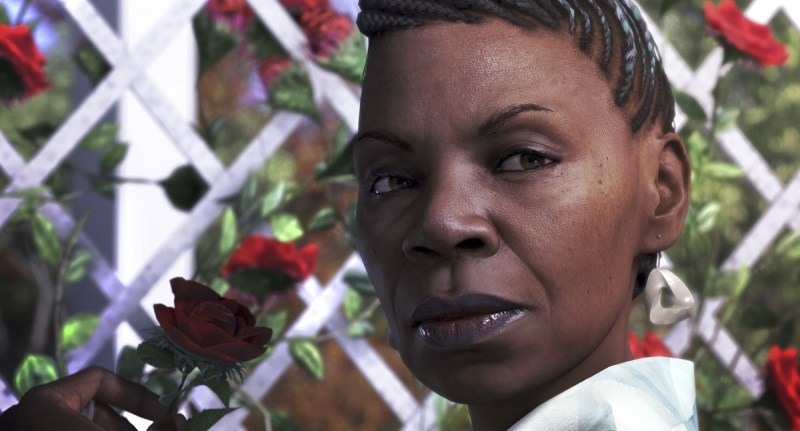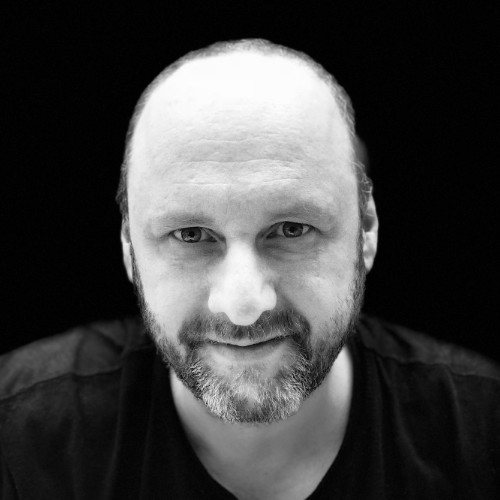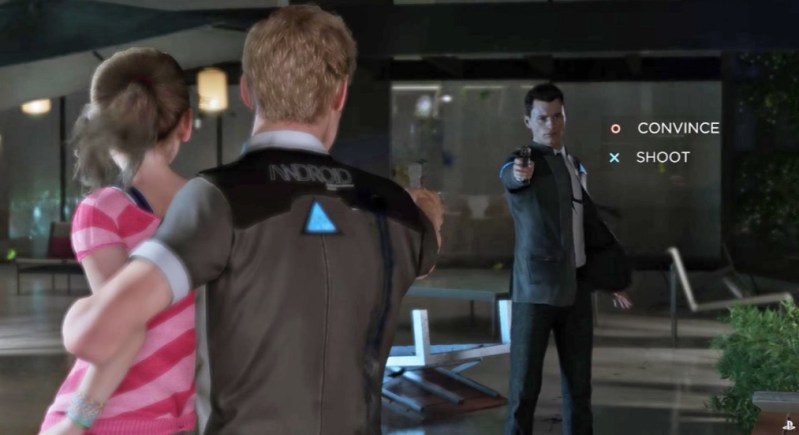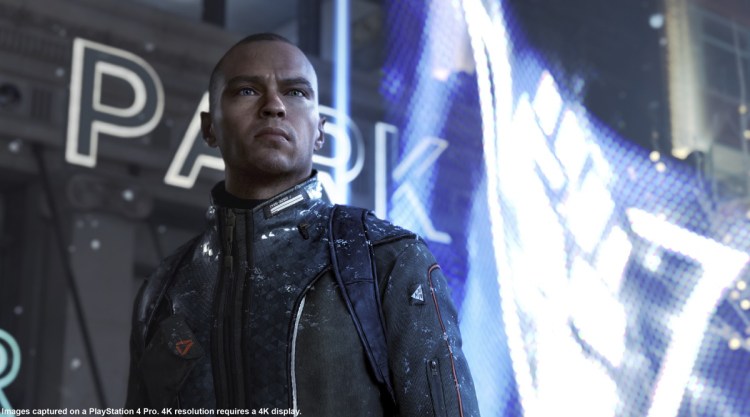For the past 12 years, Quantic Dream has been making exclusive video games like Detroit: Become Human and Heavy Rain for the PlayStation 4. But Chinese internet company NetEase Games announced today it has acquired a minority stake in Quantic Dream.
And that means that Quantic Dream will now make interactive storytelling games for a wider number of platforms. The deal is the latest between a big Chinese game publisher and a talented Western development studio. Quantic Dream will now expand its hiring and have the resources to invest in its next generation of games, said David Cage, cofounder of Quantic Dream, in an email interview with GamesBeat.

Above: Detroit: Become Human’s Amanda is a leader at CyberLife.
The 22-year-old Paris, France-based studio will continue to operate independently under the direction of industry veterans Cage and Guillaume de Fondaumière. That’s important for preserving the creativity of a studio that made Detroit: Become Human, a powerful parable about modern society’s mad rush to make a new generation of slaves in the form of human-like androids.
Quantic Dream does a great job creating realistic human faces — or android faces, in the case of its latest game — and deep, emotional stories in the form of interactive video games. Detroit: Become Human, which drove the human realism further than the previous titles Beyond: Two Souls and Heavy Rain, was one of my favorite games of 2018.
In advance of today’s announcement, I did an exclusive email interview with Quantic Dream co-CEOs Cage and Guillaume de Fondaumiére, as well as Simon Zhu, NetEase’s general manager of investment and strategy.
Here’s an edited transcript of the interview.

Above: This is David Cage’s real face, or, rather, a picture of it.
GamesBeat: What is the agreement you have with NetEase? Can you describe it? Do you get an investment from NetEase as part of this deal?
David Cage: We’re very excited to report that NetEase has taken a minority share in the capital of Quantic Dream. This investment will allow us to invest in future technologies and games in order to prepare for the next generation of platforms, with the same ambition regarding creativity and innovation.
Our goal is to develop our studio as a global, multi-franchise company, while remaining an independent studio. We want to keep developing original games in the genre we pioneered, but also expand our audience by being present on all platforms.
We were not interested in just getting funding. A studio’s future is shaped by vision, the means to realize it, but also about finding partners with whom you can create synergies in order to build something together, while remaining independent in your decisions.
We talked to many people interested in partnering with us, but we found we were attracted by NetEase’s strategy. We looked at their investments in Bungie or Second Dinner that felt very relevant, we shared thoughts about the respective visions of our companies, and we realized that we had a lot in common. Also importantly, we felt their genuine enthusiasm and passion, which is also extremely important for us.
They are a massive company listed at the Nasdaq and are the sixth largest video game company in the world, but we quickly had a very close relationship based on trust and respect.
GamesBeat: How many employees are now at Quantic Dream? Where are they mostly based?
Cage: Quantic Dream’s studio has been based in Paris for the past 22 years. The current size of the team is around 150 full-time employees. We are now expanding our staff and we are currently actively recruiting talents from around the world to work on our next generation of tech and slate of ambitious projects.
Although the company is definitely going to grow in size, we don’t want to become a “game assembly line.” We want to keep the mindset of a “handcraft workshop,” with a structure whose size mirrors its passion, where we are proud of creating something unique. Throughout our company’s existence we have shown that this can be done without sacrificing economic success as all our past games have been profitable.
We believe that when you put sincere passion and love into what you create, players can feel it and appreciate your work even more.
GamesBeat: Why are you doing it?

Above: Guillaume de Fondaumière is co-CEO of Quantic Dream.
Guillaume de Fondaumière: David Cage and I have been thinking about where we wanted to go next with the company for quite some time. We had the feeling that the landscape was going to evolve significantly in the coming years – with new platforms, new business models, new ways of playing and new businesses driving change in the industry. All of these evolutions will definitely have their own challenges, but also offer amazing opportunities.
Quantic Dream is quite an atypical company. We’ve developed proprietary engines and technologies for 22 years, created original IP for a worldwide market, collaborated exclusively with Sony for 12 years, and pioneered the genre of interactive storytelling and emotions in games at a time when few believed in it. The success of our last game, Detroit: Become Human, shows that we have found a certain maturity with our format, but also that there is a growing demand for the types of games we make. We see that the storytelling and emotive experiences that we pioneered are now a part of most triple-A titles. Even. Television has begun experimenting with concepts that we’ve focused on for many years.
For all these reasons, we felt it was the right moment for our studio to be more ambitious, leverage our experience and strengths and play an active role in the next evolution of the gaming industry. We were not interested in just getting funding. A studio’s future is shaped by vision and the means to realize it, but it’s also about finding partners with whom you can create synergies in order to build something together, while remaining independent in your decisions. NetEase offered us exactly this, plus their enthusiasm and passion.
GamesBeat: I loved Detroit: Become Human, and I felt it took on some very interesting AI issues in an intelligent way. I gave it a good score. But I heard a lot of criticism about it. What did you think of the critics’ views?
Cage: We wanted Detroit: Become Human to be a thought-provoking experience that would also evoke some sensitive real world issues. We expected the game to be polarizing with some press, but we don’t believe any medium can progress solely through consensus.
Detroit is certainly a radical proposition for some people, but the most important thing for us was the amazing reception the game received from gamers, which has translated into our studio’s biggest commercial success to date. Eight months following the release, we are closing in on 3 million units sold worldwide as an exclusive PS4 title. The game’s commercial performance has been particularly noteworthy in Japan and across all Asia.
The game also got very high user scores. On Metacritic for instance, Detroit: Become Human has an 87 percent average user score. That was the 7th best user-rated PS4 game of 2018 and enabled us to enter the Top 20 of the best ever user-rated PS4 games.
The community supporting the game is absolutely amazing and we are delighted to see how Detroit is able to bring people together around the world. This reception is really energizing for the whole team and we are extremely grateful for that.

Above: Connor confronts a rogue android in Detroit: Become Human.
GamesBeat: You had some controversy in the past year, as Detroit was coming to market. Do you feel like that hurt the game in some way? Specifically, I mean the criticism from former staff about how the company did a lot of crunch and had a toxic environment.
Guillaume de Fondaumière: We don’t comment on former staff assertions as we have stated before, we categorically refute these allegations. What we can say is that our team has always been and remains united and everyone is thrilled about the recent studio evolutions.
We don’t pretend to be a “perfect” company, no company should – but we do work hard and will continue to do so to offer our team an enjoyable working environment and competitive compensation. We pay every hour of overtime when such extra work is necessary at the end of a project.
Quantic Dream is a studio where everyone regardless of nationality, race, genre, sexual orientation or belief can express itself freely. And this is why we have such a high average seniority (8+ years) and a very diverse team reflecting these values. We not only have a higher average of female employees than the industry, but women have equal salaries compared to men, production is run by two women and five out of nine department leads are women.
I believe it is worth mentioning that we have introduced plans in recent years for certain key employees to become shareholders and jointly decided with NetEase to extend this practice in the future, allocating about 10 percent of the company’s shares to our employees moving forward.
We believe this will further strengthen the cohesion of the team.

